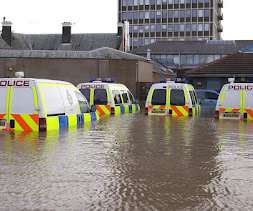Four Questions About the Covid-19 Pandemic
Emergency Planning
DECEMBER 14, 2020
What are, and have been, the key challenges in coping with the Covid-19 pandemic? The first challenge is to understand the behaviour of an emerging disease caused by a new variant of a virus. Viral pandemics can have impacts that are as significant in the socio-economic field as they are in epidemiology and viral medicine.











Let's personalize your content